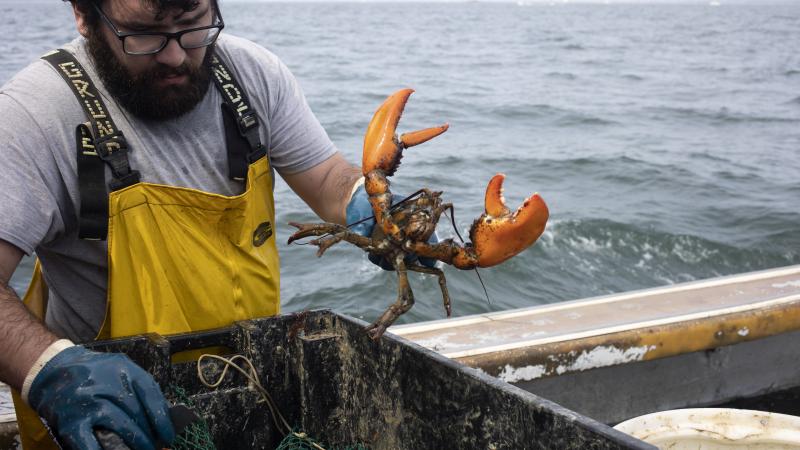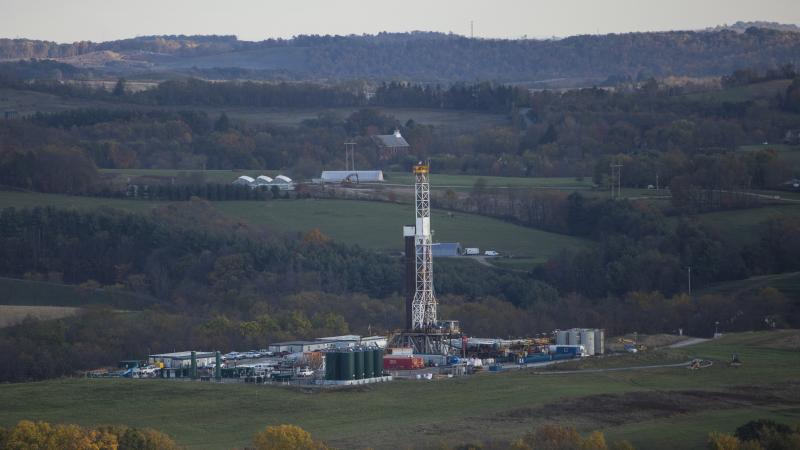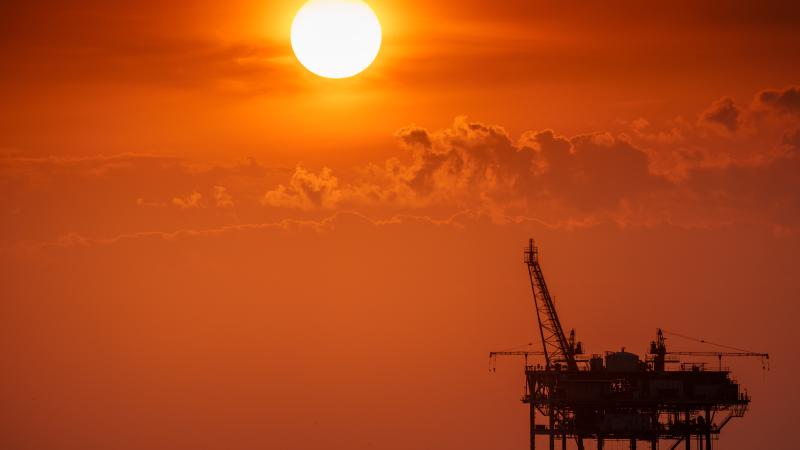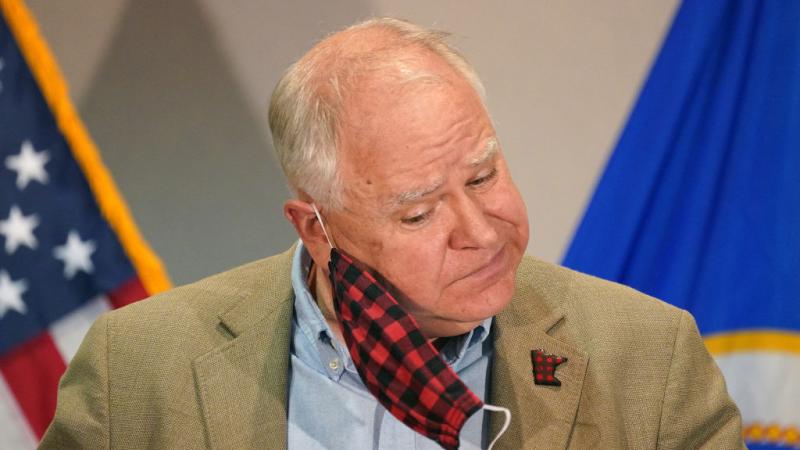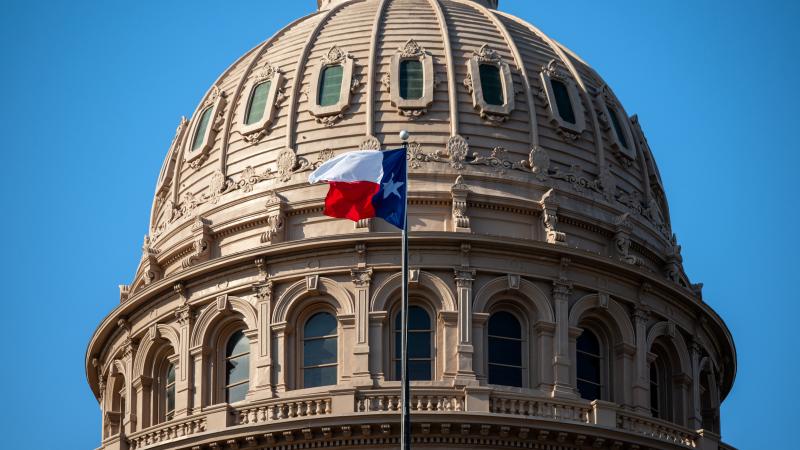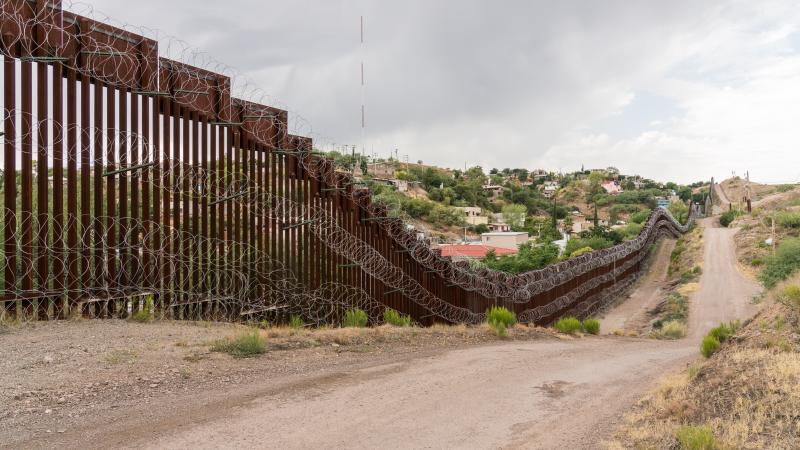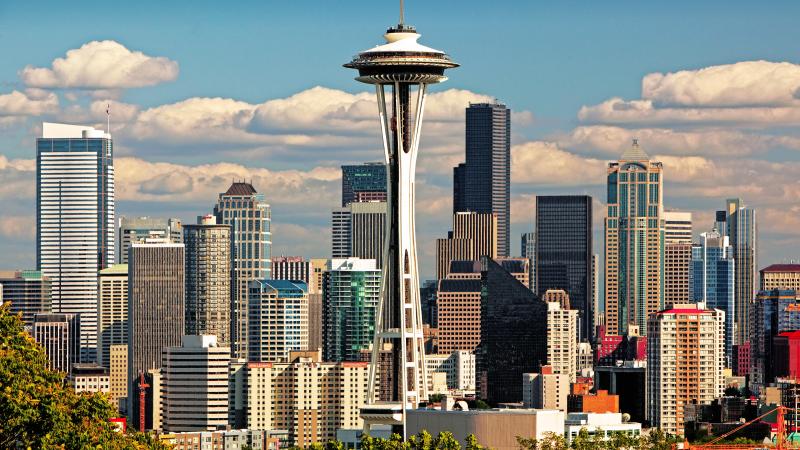Offshore wind opponents file lawsuit to stop Empire Wind, arguing feds’ greenlighting violated law
Protect Our Coast New Jersey, Clean Ocean Action, and Nantucket-based ACK for Whales, joined by commercial fishing industry groups, filed a lawsuit last week in the U.S. District Court of New Jersey, asking the court to void Equinor’s lease.
A coalition of environmental groups from New Jersey to Massachusetts is asking the courts to halt a 54-turbine project south of Long Island, New York, known as Empire Wind, after the Trump administration put the brakes on the project, then reversed course.
In April, the administration halted the project, saying the previous Biden-Harris administration had “rushed” the permitting process “without sufficient analysis.” The stop-work order would be in place, the Department of Interior said, until a full review of that process was complete.
The department then reversed the decision the following month, and it gave no indication that any review had been completed. Opponents of offshore wind development say the decision was illegal, and now the coalition is taking the matter to the courts.
Protect Our Coast New Jersey, Clean Ocean Action, and Nantucket-based ACK for Whales, joined by commercial fishing industry groups, filed a lawsuit last week in the U.S. District Court of New Jersey, asking the court to void the lease for Equinor, the company behind Empire Wind.
The complaint names the Department of Interior and associated agencies as well as Equinor and the Kingdom of Norway, which has a 67% stake in Equinor.
File
“The federal government failed to meet its own legal standards for environmental review, species protection and interagency coordination. These omissions are not procedural. They are unlawful,” lead counsel Bruce Afran said in a statement.
The lawsuit argues the project’s environmental assessments are incomplete and that endangered species protections are mishandled. The reinstatement order, according to the complaint, was made without any factual basis. Therefore, it’s arbitrary and capricious, and violates the Administrative Procedures Act.
The lawsuit also argues that the Outer Continental Shelf Lands Act (OCSLA) doesn’t permit leases to entities controlled by foreign states.
“New York’s increased electric rates will help fund a foreign government,” Afran said.
Risks to aviation
The lawsuit also argues that risks to radar and aviation safety haven’t been adequately addressed.
Rep. Chris Smith, R-N.J., issued a statement Monday applauding the lawsuit. Smith authored an amendment in 2023 that would have required then-President Joe Biden to certify that offshore wind projects would not “weaken, degrade, interfere with or nullify the capability of radar” used in civilian, commercial and military aviation. The Senate did not consider the measure.
Smith notes in his statement that the Government Accountability Office released a report in April warning that, “Wind turbines can reduce the performance of radar systems used for defense and maritime navigation and safety in several ways.”
“It is abundantly clear that major, unanswered questions remain regarding this project. The lawsuit underscores the inherent dangers in poorly vetted, extremely dangerous offshore wind projects and should provide the information needed both in court and for President Trump’s ongoing review, to once and for all pull the plug on Empire Wind,” Smith said.
Amy DiSibio, board member with Ack4Whales, told Just the News that the Empire Wind project, which is one of many projects along the East Coast from Long Island up through Massachusetts, is particularly poorly cited. It’s right in the middle of the endangered North Atlantic Right Whale migratory path, which is Ack4Whales’ interest in the lawsuit, and she said it’s also a safety concern.
The project is cited in the New York Bight, which has large amounts of sea traffic going in and out of New York Harbor. It’s also one of the nation’s busiest airspaces with three international airports – Newark Liberty International Airport, John F. Kennedy International and LaGuardia Airport – as well as multiple smaller ones.
“I have personally always thought this project, just from a geographical standpoint, is just nonsensical,” DiSibio said.
Multiple legal actions
The lawsuit is not the only legal action that opponents of offshore wind development are taking against Empire Wind and other projects along the East Coast.
SaveLBI was joined by Save the East Coast, Protect Our Coast Long Island-New York, and Miss Belmar, a whale-watching tourism company, in a lawsuit challenging the approval of the project. Their complaint argues that the Biden administration had authorized the construction and operation of the project without adequately safeguarding marine mammals and properly assessing the project’s full environmental impact.
In May, Ack4Whales, along with the Wampanoag Tribe of Gay Head / Aquinnah, Green Oceans, a coalition of charter fishing groups, and seven individuals filed a lawsuit in federal court objecting to the approval of New England 1 and 2 projects off the coast of Massachusetts.
Before that lawsuit, Ack4Whales sued to stop the construction of Vineyard Wind, off the coast of Nantucket. A lower court upheld the federal government’s approval, and the Supreme Court declined to review the decision.
Elmer Peter Danenberger, a petroleum engineer who worked in the Interior Department's offshore oil and gas program for 38 years, wrote on his “Bud’s Offshore Energy” website that many of the elements of the lawsuit against Empire Wind have merit.
However, he said the charge against Norway won’t likely stand. U.S. subsidiaries of foreign companies have long held leases under OCLSA, and Equinor US Wind holds the wind lease, he points out. Likewise, subsidiaries of Equinor also have oil and gas operations in the Gulf of Mexico.
“There is nothing in OCSLA that distinguishes between U.S. subsidiaries of private and govt [government] owned companies,” Danenberger wrote. The argument that the DOI never completed a review that it said was necessary when it halted the project, Danenberger wrote, appears to have more merit.
Quid pro quo
It’s not clear why Interior Secretary Doug Burgum reversed the stop-work order on Empire Wind. Citing unnamed sources, the Washington Free Beacon reported that the sudden reversal came as New York Democratic Gov. Kathy Hochul agreed to advance two natural gas pipeline projects. In a post on X, Burgum praised Hochul’s willingness to move forward with “critical pipeline capacity.”
“Americans who live in New York and New England would see significant economic benefits and lower utility costs from increased access to reliable, affordable, clean American natural gas,” he wrote.
In a statement, Hochul touted her success in securing jobs and “clean energy,” and made no mention of pipelines. Instead, she said she would work with the administration and private entities on “new energy projects that meet the legal requirements under New York law.”
If that’s the case, it may be hard to convince the court that the permitting review wasn’t needed before lifting a stop-work order that the department had instituted a month before to complete a review it said was necessary.
While the action winds its way through the courts, construction on Empire Wind continues. Late last month, the developer docked a 662-foot long, 472-foot wide crane vessel in Narragansett Bay in Rhode Island. The cranes of the Thialf, as the vessel has been dubbed, will be used to lift the monopiles that will be driven into the seabed to hold up the towers, according to Offshore. The vessel will also put in place the latticework foundation for the offshore substation serving the project.
The Facts Inside Our Reporter's Notebook
Documents
File
Links
- put the brakes on Empire Wind
- reversed the decision the following month
- Protect Our Coast New Jersey
- Clean Ocean Action
- ACK for Whales
- Administrative Procedures Act
- Norwegian state has a 67% stake in Equinor
- applauding the lawsuit
- authored an amendment in 2023
- Government Accountability Office released a report in April
- cited in the New York Bight
- large amounts of sea traffic
- nationâs busiest airspaces
- Save the East Coast
- Protect Our Coast Long Island-New York
- Miss Belmar
- lawsuit challenging the approval of the project
- Wampanoag Tribe of Gay Head / Aquinnah
- Green Oceans
- New England 1 and 2 projects
- Vineyard Wind
- lower court upheld the federal governmentâs approval
- Elmer Peter Danenberger
- Budâs Offshore Energy
- the Washington Free Beacon
- post on X
- Hochul touted her success
- 662-foot long, 472-foot wide crane vessel
